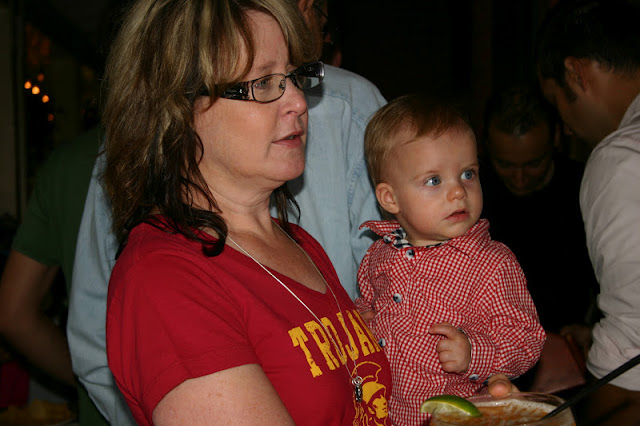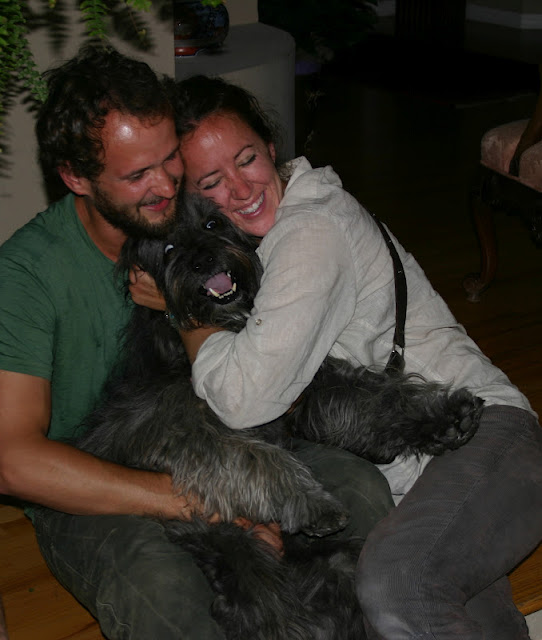One afternoon at the farm in Dedetepe, Turkey, a friend and co-worker pulled out The I Ching. Despite the widespread acclaim for the process - and the incredible coincidence we all reckoned happened when both Chris and drew hexagrams telling us to move "south and west" - we walked away from our I Ching experience skeptical and unfazed - until, back on US soil, we began our journey west. As we got out of the car to take a picture at the iconic border of Colorado, we started to think, "maybe there are no coincidences". Every spot we had visited on our journey had spoken in some way to the problem we had come to solve - but eventually we realized we may have been asking the wrong questions.
A month before we came home to the states, the United States Supreme Court ruled in favor of Kuntrell Jackson and Evan Miller's petition challenging the constitutionality of sentencing juveniles to life in prison with no hope of release. As we wrote on the day of the ruling, June 25, 2012 was without a doubt one of those days that truly matters. And as we move forward, we and the folks who worked for years to see that day will continuously look back and remember the moment we heard the news, the celebrations that ensued and each and every phone call we made to a loved one of someone serving, renewing our energy for the struggle that would continue. Unfortunately, without a great deal of work the reality of the ruling will not be that 2500 children receive a meaningful and realistic opportunity for relief as the judgment of the US Supreme Court orders. The work that continues will involve a great many people returning to court - hopefully with the assistance of outside counsel. The ruling and the work that will continue must demand a fundamental shift in the system that allowed these sentencings to happen in the first place. Why did the United States ever sentence juveniles to life in prison without the hope of release? Why did we sentence children to die in prison? This is a large scale problem with explanations at both the state and federal levels. Our time abroad allowed us to realize that this problem shares its roots with a multiplicity of problems throughout the United States - and these roots are mired in irony.
Although the the institution of the United Nations and one of its most esteemed documents, the Universal Declaration of Human Rights (IDHR), originated at the urging of the United States, the United States has ratified very few of the actual treaties passed from this body. None of the treaties have been entered into force, i.e. legislated. The United States constitution does not acknowledge many human rights that other countries enumerate in their constitutions. As examples, in Mongolia, human rights discourse and treaties are directly addressd in their constitution; the constituions of Armenia, Belgium, Burkina Faso, Congo, Ecuador, Equatorial Guinea, Guyana, Haiti, Honduras, Mali, Mexico, Nicaragua, Paraguay, Russia, Sao Tom & Principe, Seychelles, South Africa, Spain, and Venezuela all recognize the right to adequate housing. Norway, New Zealand, Japan, Germany, Belgium, United Kingdom, Kuwait, Sweden, Bahrain, Brunei, Canada, Netherlands, Austria, United Arab Emirates, Finland, Slovenia, Denmark, Luxembourg, France, Australia, Ireland, Italy, Portugal, Cyprus, Greece, Spain, South Korea, Iceland, Hong Kong, Singapore, Switzerland, and Israel recognize the right to health care. While twenty three countries have some sort of explicit provision for a right to food - the United States is one of approximately eleven countries that has taken no steps to acknowledge this right.
Originally, we set out on our trek to answer the question "why does the United States sentence its children to die in prison?" We returned wondering - "Why does the United States ignore fundamental human rights?"
It is not enough to say that three treaties specifically or implicitly ban sentencing youth to die in prison. The United States is the incarceration capitol of the world. If we are going to address this crisis in a meaningful way we also need to address and enforce human rights which can directly or indirectly affect the problem in the first place: access to food; access to housing; adequate healthcare. We do not mean to suggest that these are rights that are easy to provide, but if they are completely absent from the documents that guide our values and our politics what is actually guiding the discussion?
Since we arrived home we have been able to reconnect with our friends in the south and our friends in the west. We have been catching up with our families and we are settling into a new period of our lives. Through these interactions have we realized what else we brought home with us - besides more questions.
What we know now: No matter where we are there is a wrong to be righted, a problem to be solved, and a person trying to make home better. Moving away from the hearts we left in New Orleans is no easier today than it was when we packed the moving truck last fall. We have no idea what awaits us in Los Angeles. But - no worries. The umbrellas, the tutus, the Crystal hot sauce, and the beads are on board.
As the I Ching predicted, we are of the south, and now the west.
Although the the institution of the United Nations and one of its most esteemed documents, the Universal Declaration of Human Rights (IDHR), originated at the urging of the United States, the United States has ratified very few of the actual treaties passed from this body. None of the treaties have been entered into force, i.e. legislated. The United States constitution does not acknowledge many human rights that other countries enumerate in their constitutions. As examples, in Mongolia, human rights discourse and treaties are directly addressd in their constitution; the constituions of Armenia, Belgium, Burkina Faso, Congo, Ecuador, Equatorial Guinea, Guyana, Haiti, Honduras, Mali, Mexico, Nicaragua, Paraguay, Russia, Sao Tom & Principe, Seychelles, South Africa, Spain, and Venezuela all recognize the right to adequate housing. Norway, New Zealand, Japan, Germany, Belgium, United Kingdom, Kuwait, Sweden, Bahrain, Brunei, Canada, Netherlands, Austria, United Arab Emirates, Finland, Slovenia, Denmark, Luxembourg, France, Australia, Ireland, Italy, Portugal, Cyprus, Greece, Spain, South Korea, Iceland, Hong Kong, Singapore, Switzerland, and Israel recognize the right to health care. While twenty three countries have some sort of explicit provision for a right to food - the United States is one of approximately eleven countries that has taken no steps to acknowledge this right.
Originally, we set out on our trek to answer the question "why does the United States sentence its children to die in prison?" We returned wondering - "Why does the United States ignore fundamental human rights?"
It is not enough to say that three treaties specifically or implicitly ban sentencing youth to die in prison. The United States is the incarceration capitol of the world. If we are going to address this crisis in a meaningful way we also need to address and enforce human rights which can directly or indirectly affect the problem in the first place: access to food; access to housing; adequate healthcare. We do not mean to suggest that these are rights that are easy to provide, but if they are completely absent from the documents that guide our values and our politics what is actually guiding the discussion?
We left seeking answers. We came back with many more questions. Through 13 countries and across nearly 14,000 miles we never once encountered a preponderance of answers. What we found was a lot of people, just like us, who care about their homes and what is happening to their communities . Although we in the United States love our home, we do not have the greatest home in the world. Perhaps the twisted comfort in that is that no one does - but as our good friend and comrade, always says "we all have something to bring to the party."
In a few minutes we will publish our final post and send it along to our families and our friends - friends here and the friends we met along the way. The thoughts and ideas we fromulated over six months and half a dozen methods of transportation will travel and be shared in unperceived seconds. Never before has that time and distance seemed so significant, and at the same time never before has it seemed so trivial. We've arrived back in the US more committed than ever to making our home better. Never before has that seemed so possible. Our post will arrive in the inboxes of our friends in Moscow while they are taking calls from the mothers of soldiers - mothers trying to pay for their son's medical bills. Our post will be read by our friends in Mongolia who are working to keep open the doors to the only public library in town, by our friends in Kosovo who are researching an economical way to dispose of their trash, and by our friends in Istanbul who will be telling the stories of young men and women who were killed simply for being honest about who they were. We know that these friends are at work while we are resting. We know that each morning we have the privilege to wake up and take the reigns they have handed us. Knowing this makes everything seem a little bit more possible.
What we know now: No matter where we are there is a wrong to be righted, a problem to be solved, and a person trying to make home better. Moving away from the hearts we left in New Orleans is no easier today than it was when we packed the moving truck last fall. We have no idea what awaits us in Los Angeles. But - no worries. The umbrellas, the tutus, the Crystal hot sauce, and the beads are on board.
As the I Ching predicted, we are of the south, and now the west.
We will forever and gladly be indebted to the dozens of people that donated to the Juvenile Justice Project of Louisiana. Together we raised over $2000 and educated hundreds of people about the crisis of incarceration in the United States. Together we chose to not ignore an injustice but instead to make it a little easier for people continue the struggle.
Big Thanks to:
Erik Hardin
Emily More
Sarah McCall
Kristin Hoddinott
Nicole Varma
Megan Caldwell
Arin Rollingher
Brian Weberg
MaryClare Peak & Dan Marlow
Casey Hughes
Kristin Wenstrom
Lauren Sanchez
Matt Wolf
Connie & Gregg Orians, as well as Belle, Cassius and Elbert
Cindy Wood
Carl Boand
Travis Massman
Nancy, Terry & Samantha Blankenship
Caitlin Boyce
Carrie Ann Alford
Ryan Basta
Daniel Gutman
Eliza Willamson
MaryJane Burch
Lou Szkatulski (in memory of her daughter Cherri Saltzman)
Nathan Peyer
Amy, Michael and Montgomery Sobol
Lauren Shapiro
Iva Blankenship
Sue Blankenship Boltz
Joanne Talarico
Betty and Bruce Hediger
The Pineda Family
Dan Nibler
Michaela Kovaks
Travis Martin
Luke Cedric Faikal


















































